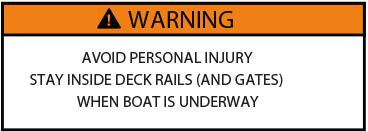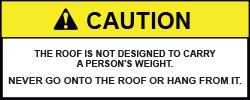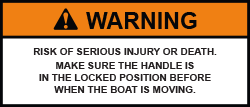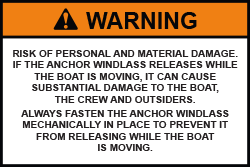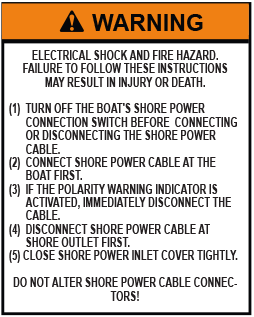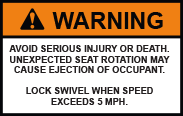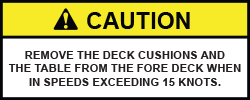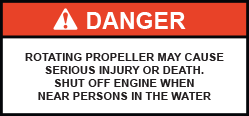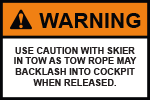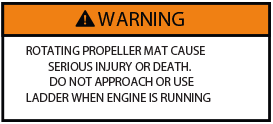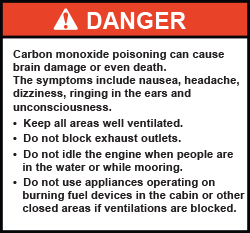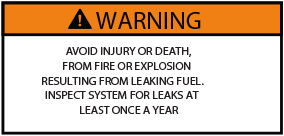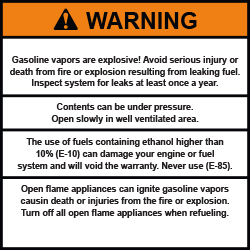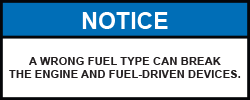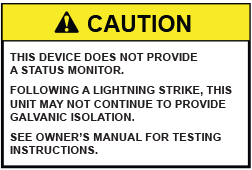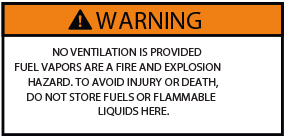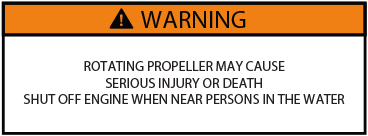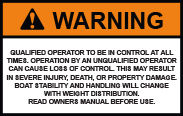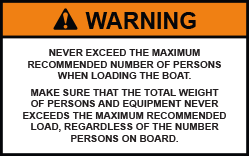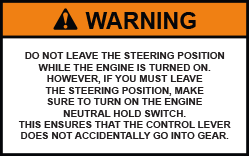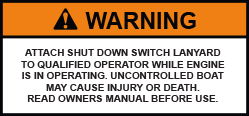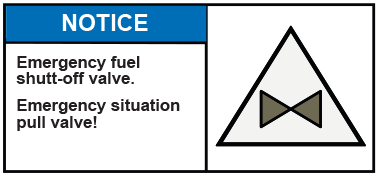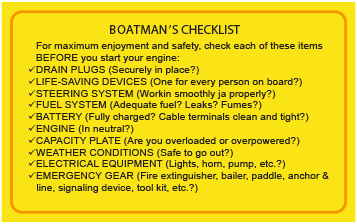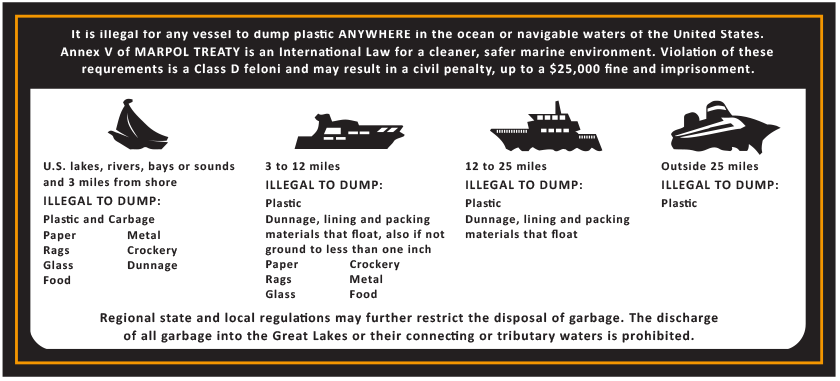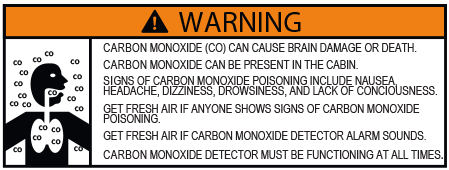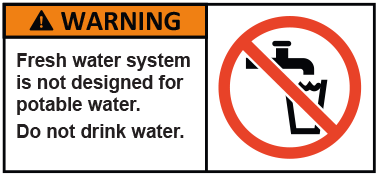It is important that you read and understand all these safety labels. Ensure that your crew also understand them.
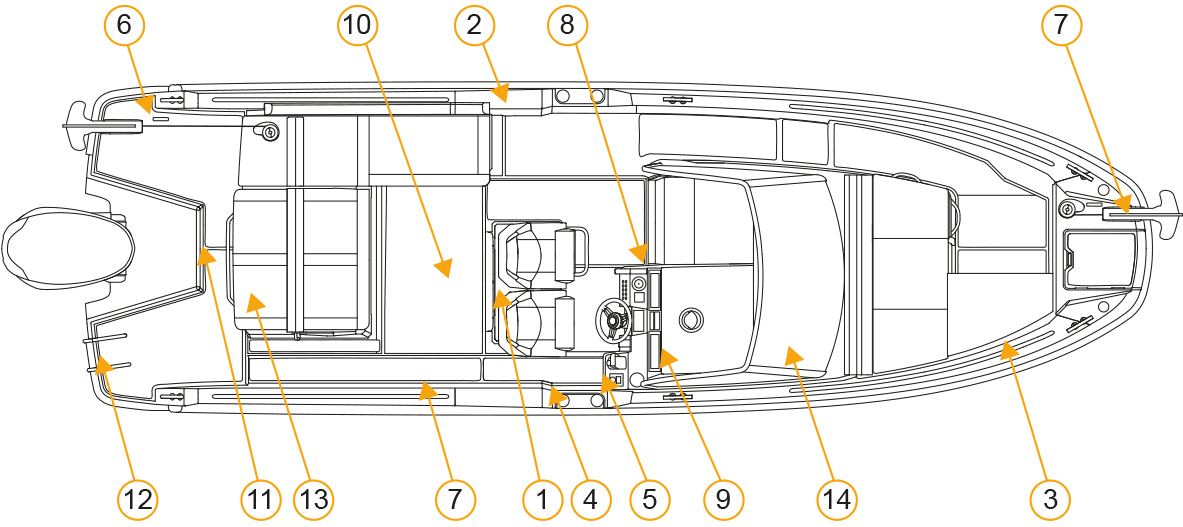
|
Location |
Label |
Clarification |
|---|---|---|
|
1 |
|
WARNING Avoid personal injury. Stay inside the deck rails (and gates) when the boat is under way. |
|
1 |
|
WARNING Always keep the hatch tightly closed when the boat is in water. |
|
1 |
|
WARNING Doors must be kept shut when under way. |
|
1 |
|
CAUTION The roof is not designed to carry a person's weight. Never go onto the roof or hang from it. |
|
2 |
|
WARNING Risk of serious injury or death. Make sure the handle is in the locked position when the boat is moving. |
|
2 |
|
WARNING Never use the roof structure for anchoring, mooring or towing. The boat can capsize. |
|
3, 7 |
|
WARNING Always keep the hatches tightly closed when the boat is in water. |
|
3 |
|
WARNING Risk of personal and material damage. If the anchor windlass is released while the boat is moving, it can cause substantial damage to the boat, crew and outsiders. Always fasten the anchor windlass mechanically in place to prevent it from being released while the boat is moving. |
|
4 |
|
WARNING
Do not alter the shore power cable connectors! |
|
4 |
|
WARNING Keep the hatch of the shore power plug closed when it is not in use. |
|
5 |
|
WARNING Avoid serious injury or death. Unexpected seat rotation may cause the ejection of occupant. Lock the swivel when speed exceeds 4.3 kn (8 km/h or 5 mph). |
|
6 |
|
WARNING Carbon monoxide (CO) can cause brain damage or death. |
|
8 |
|
CAUTION Remove the deck cushions and the table from the foredeck when in speeds exceeding 15 knots. |
|
9 |
|
WARNING Carbon monoxide (CO) can cause brain damage or death. |
|
9 |
|
DANGER A rotating propeller may cause serious injury or death. Shut off the engine when there are people in the water near the boat. |
|
10 |
|
WARNING Use caution when a skier is in tow, as the tow rope may backlash into the cockpit when released. |
|
11 |
|
WARNING A rotating propeller may cause serious injury or death. Do not approach or use the ladder when the engine is running. |
|
12 |
|
DANGER Carbon monoxide poisoning can cause brain damage or even death. The symptoms include nausea, headache, dizziness, ringing in the ears and unconsciousness.
|
|
12 |
|
WARNING Avoid injury or death caused by fire or explosion resulting from leaking fuel. Inspect the system for leaks at least once a year. |
|
12 |
|
WARNING Gasoline vapors are explosive! Avoid serious injury or death from fire or explosion resulting from leaking fuel. Inspect the system for leaks at least once a year. The content can be under pressure. Open slowly in well ventilated area. The use of fuels containing ethanol higher than 10% (E-10) can damage your engine or fuel system and will void the warranty. Never use fuels with 85% ethanol content (E-85). Open flame appliances can ignite gasoline vapors, causing death or injuries from fire or explosion. Turn off all open flame appliances when refueling. |
|
12 |
|
NOTICE A wrong type of fuel can damage the engine and other fuel-driven devices. |
|
13 |
|
CAUTION (This label is for the shore power charger, which is used for charging the boat's batteries using shore power.) This device does not provide a status monitor. Following a lightning strike, this unit may not continue to provide galvanic isolation and thus would not provide protection from electric current. See the owner's manual for testing instructions. |
|
13 |
|
WARNING No ventilation is provided. |
|
14 |
|
WARNING A rotating propeller may cause serious injury or death. |
|
14 |
|
WARNING Qualified operator to be in control at all times. Operation by an unqualified operator can cause loss of control. This may result in severe injury, death or property damage. Boat stability and handling will change with weight distribution. Read the owner's manual before use. |
|
14 |
|
WARNING Never exceed the maximum recommended number of persons when loading the boat. Make sure that the total weight of persons and equipment never exceeds the maximum recommended load, regardless of the number of persons on board. |
|
14 |
|
WARNING Do not leave the steering position when the engine is turned on. However, if you must leave the steering position, turn on the engine neutral hold switch. This ensures that the control lever does not accidentally go into gear. |
|
14 |
|
WARNING Attach the shut down switch lanyard to a qualified operator while the engine is running. An uncontrolled boat may cause injury or death. Read the owner's manual before use. |
|
14 |
|
NOTICE Energency fuel shut-off valve. Emergency situation pull valve! |
|
14 |
|
BOATMAN'S CHECKLIST For maximum safety and enjoyment, check each of these items BEFORE you start your engine:
|
|
14 |
|
Description of prohibitions concerning disposal of waste in US waters. |
|
15 |
|
WARNING Carbon monoxide (CO) can cause brain damage or death. |
|
15 |
|
WARNING The boat's fresh water system is not designed for potable water. Do not drink water from the boat's fresh water system. |
